A survey of 8th and 10th graders shows a sharp drop in the percent of boys who believe that women should have the same opportunities as men.
The critically-acclaimed Netflix show, Adolescence, has stoked public conversation about the problem of misogyny and violence among school-aged boys. It’s been discussed in op-eds, on morning shows and by the British Prime Minister. Many commentators accept the show’s fictional portrayal of a 14-year-old boy’s descent into a misogynist online subculture as representative of real social trends. But until now, there’s been little hard evidence of this trend, leaving room for some to claim that concern about increasing sexism among boys is just a moral panic.
Unfortunately, the trend appears to be real. The long-running Monitoring the Future study has been surveying 8th and 10th graders since 1991, and shows a sharp drop in the proportion of 8th and 10th graders that believe in gender equality in the last five years.
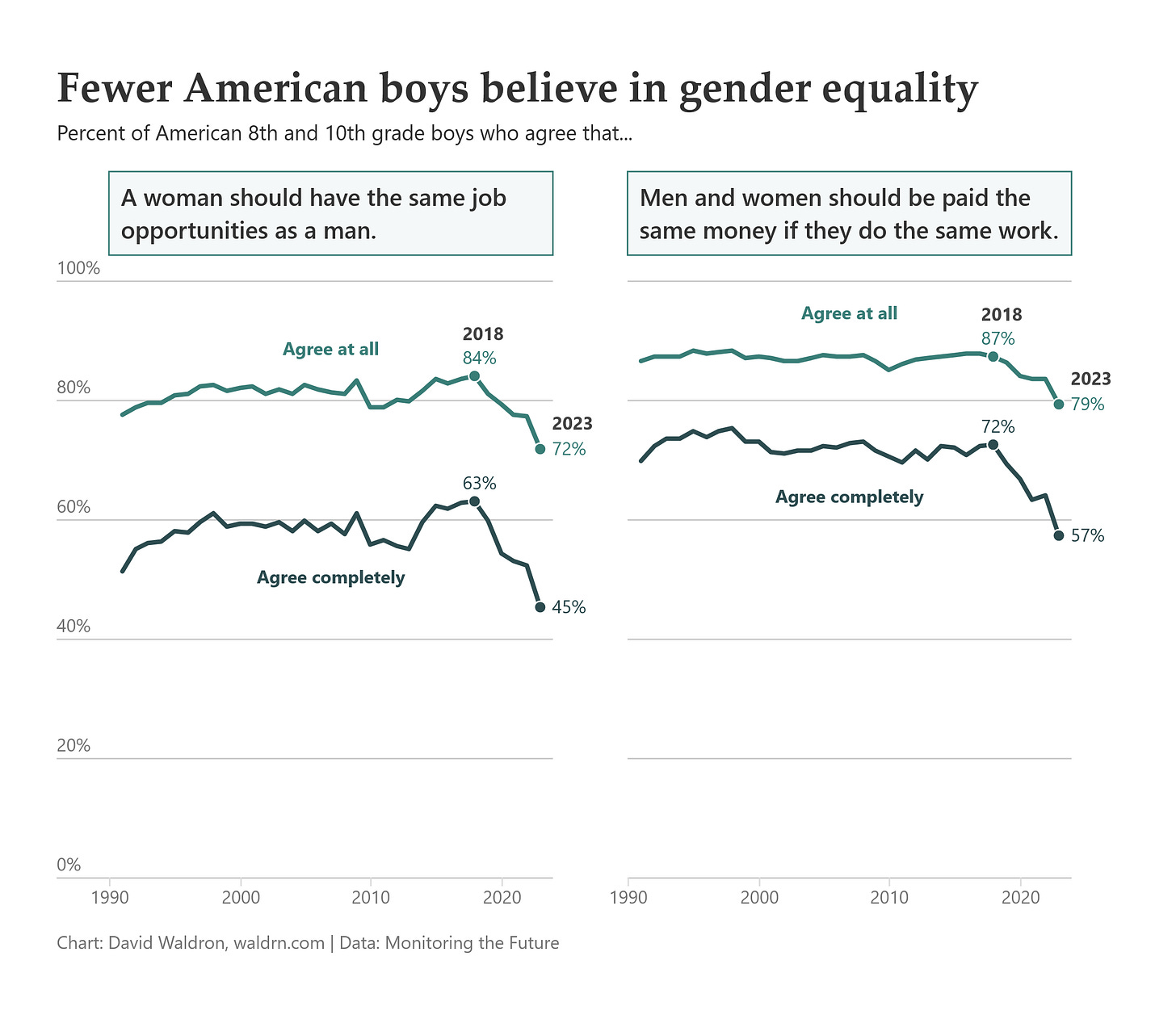
In 2018, 84% of 8th and 10th grade boys agreed that women should have the same job opportunities as men. But in the last five years, the number dropped to 72%. The proportion of boys who completely agreed (as opposed to “mostly agree”) saw an even steeper drop, from 63% to 45%.
The share of boys agreeing that women deserve equal pay also fell from 87% in 2018 to 79% in 2023. The share who agreed completely fell from 72% to 57%.
Is it social media?
Many commentators on the topic of misogyny among boys are quick to blame social media and internet subcultures such as the “manosphere” or “incels”. Some point to evidence that social media algorithms tend to amplify misogynistic content. This particular hypothesis is not confirmed by data from this survey.
In 2018, the survey started asking children about their time spent using social networks, watching videos and playing video games. But it asked only about the amount they spent on each activity, not about the nature of the content they consumed. The data shows that the sharper drops in the share of boys endorsing gender equality occurred in those who spend the least time using social networks.
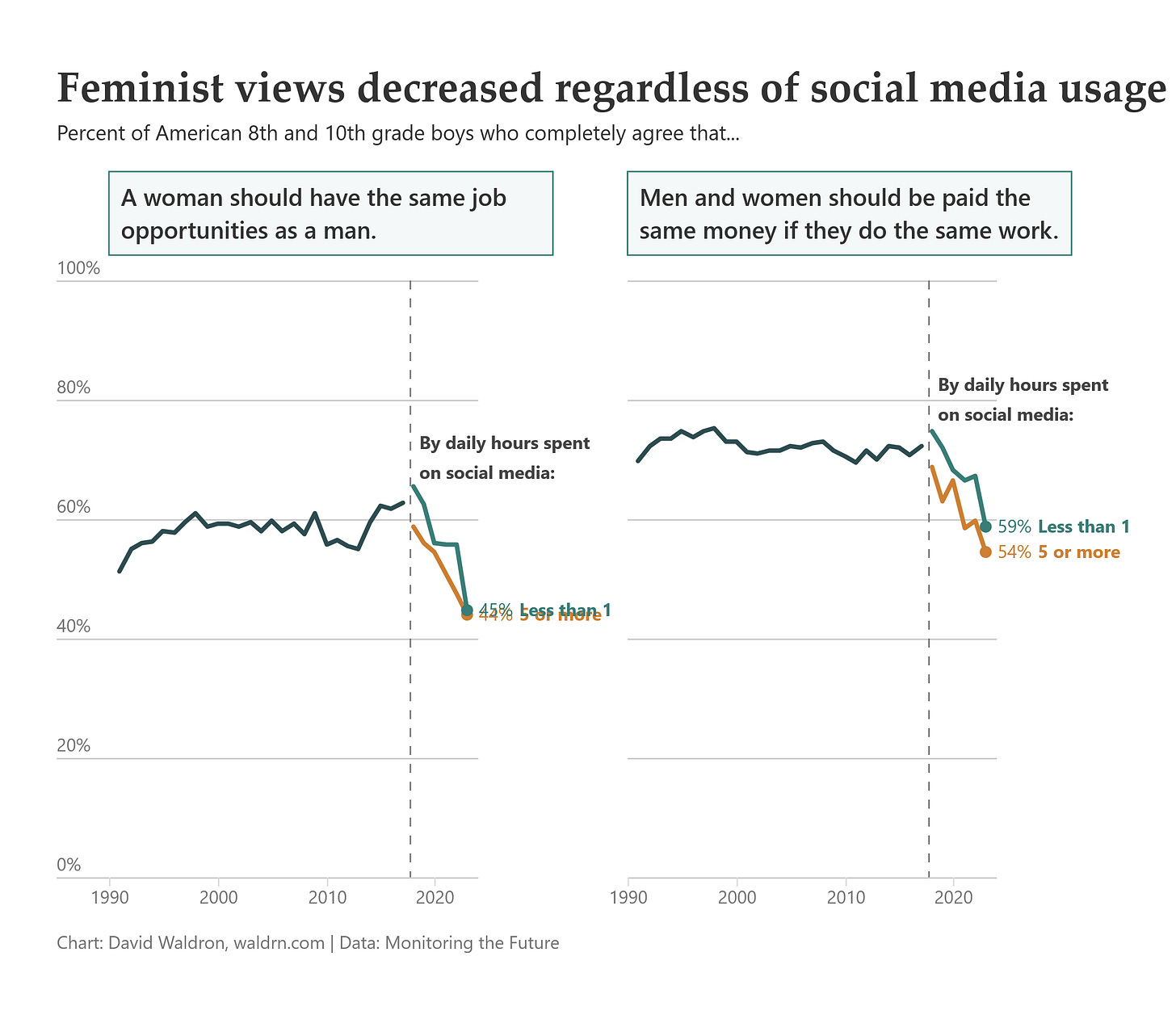
It also seems that boys who spent the least amount of time watching videos experienced the largest decreases in support for gender equality.
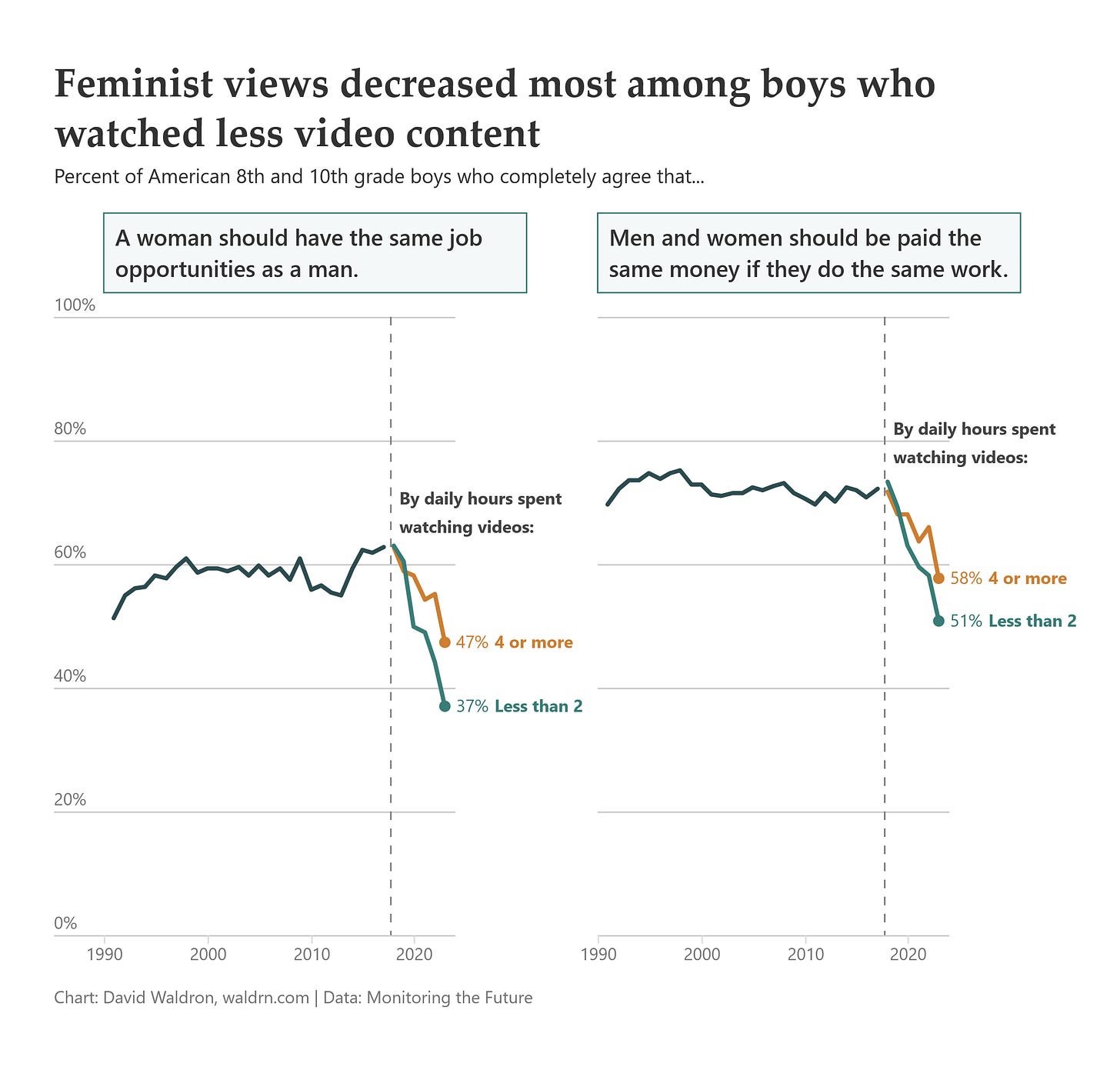
Video games also appear unlikely as a culprit, as again, it was the non-gamers who had the largest decreases in beliefs in gender equality since 2018.
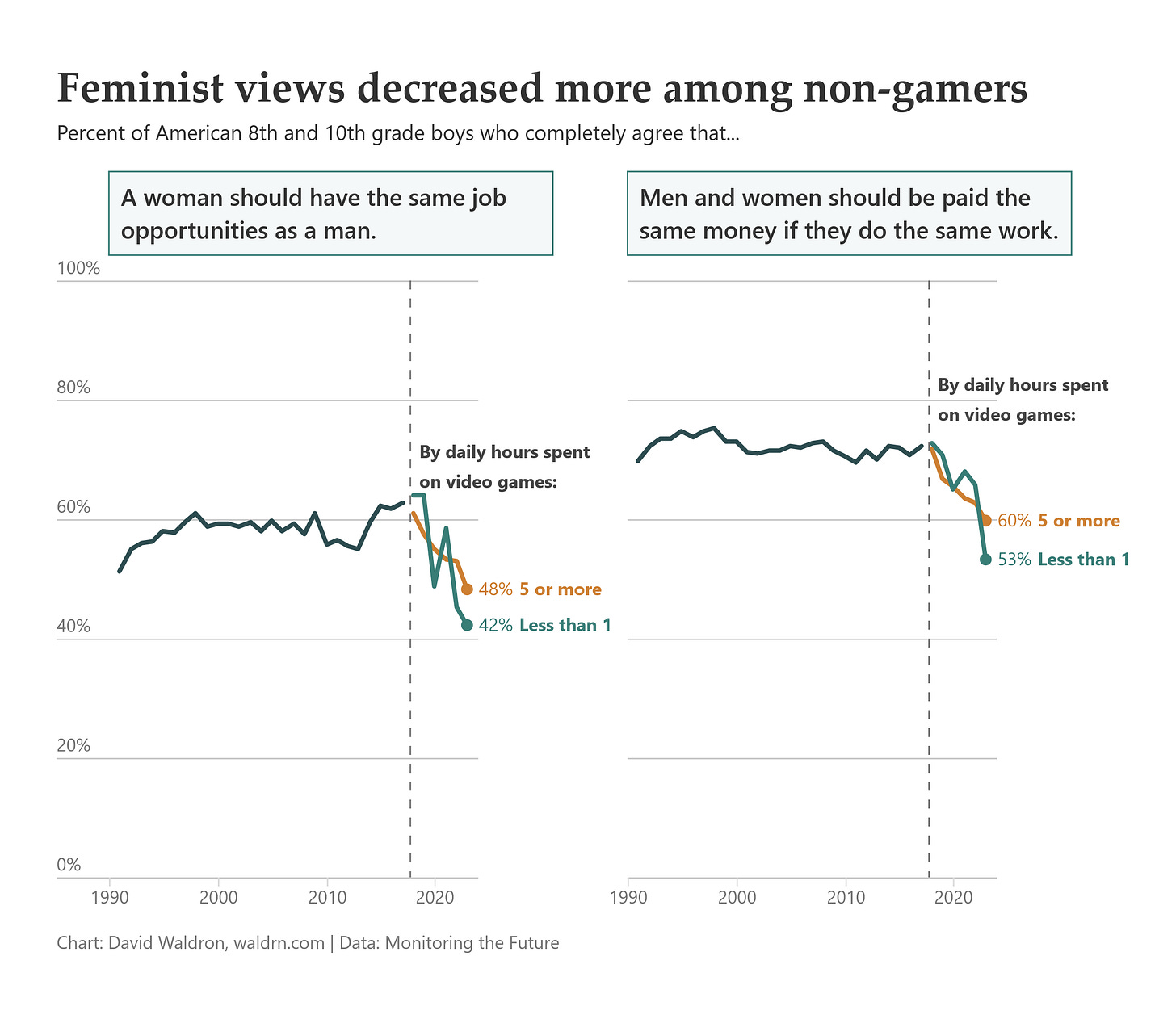
This certainly seems to undercut the popular thesis that social media and the internet are driving changing views on gender equality. It is still possible that these media formats play a role in changing views about gender equality, but it probably isn’t a simple function of the amount of time spent on them.
Social isolation and lack of romantic relationships
Is the decreasing popularity of gender equality related to social isolation? Maybe not in the way people might expect. Gender equality appears to have become less popular among both social and non-social boys, but the decrease appears to have been larger for boys who are more social, not less.
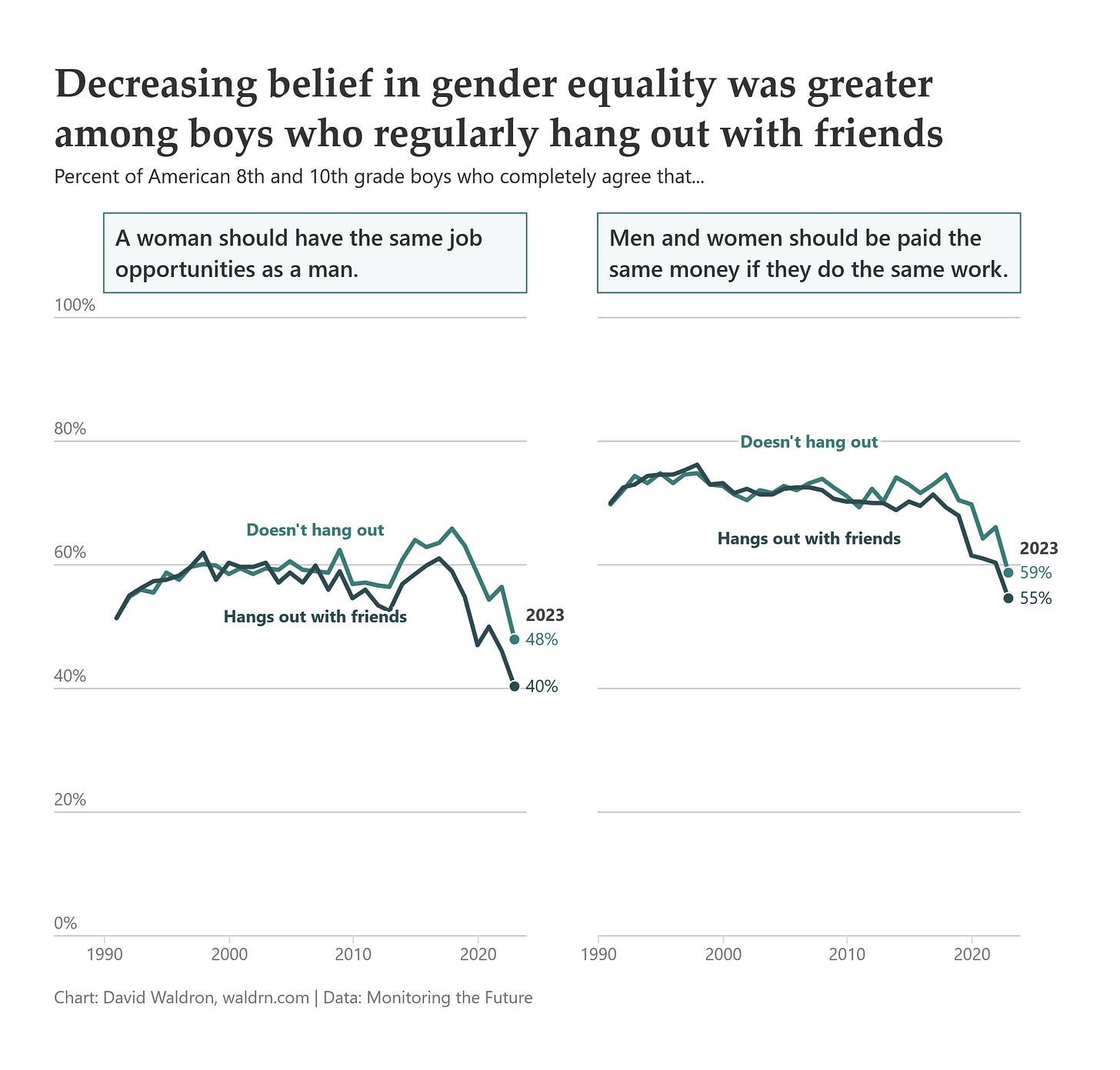
For decades, support for gender equality has been similar for boys who get together with friends informally at least once a week, and those who don’t. But in recent years, as both proportions declined, support among the more social group declined more.
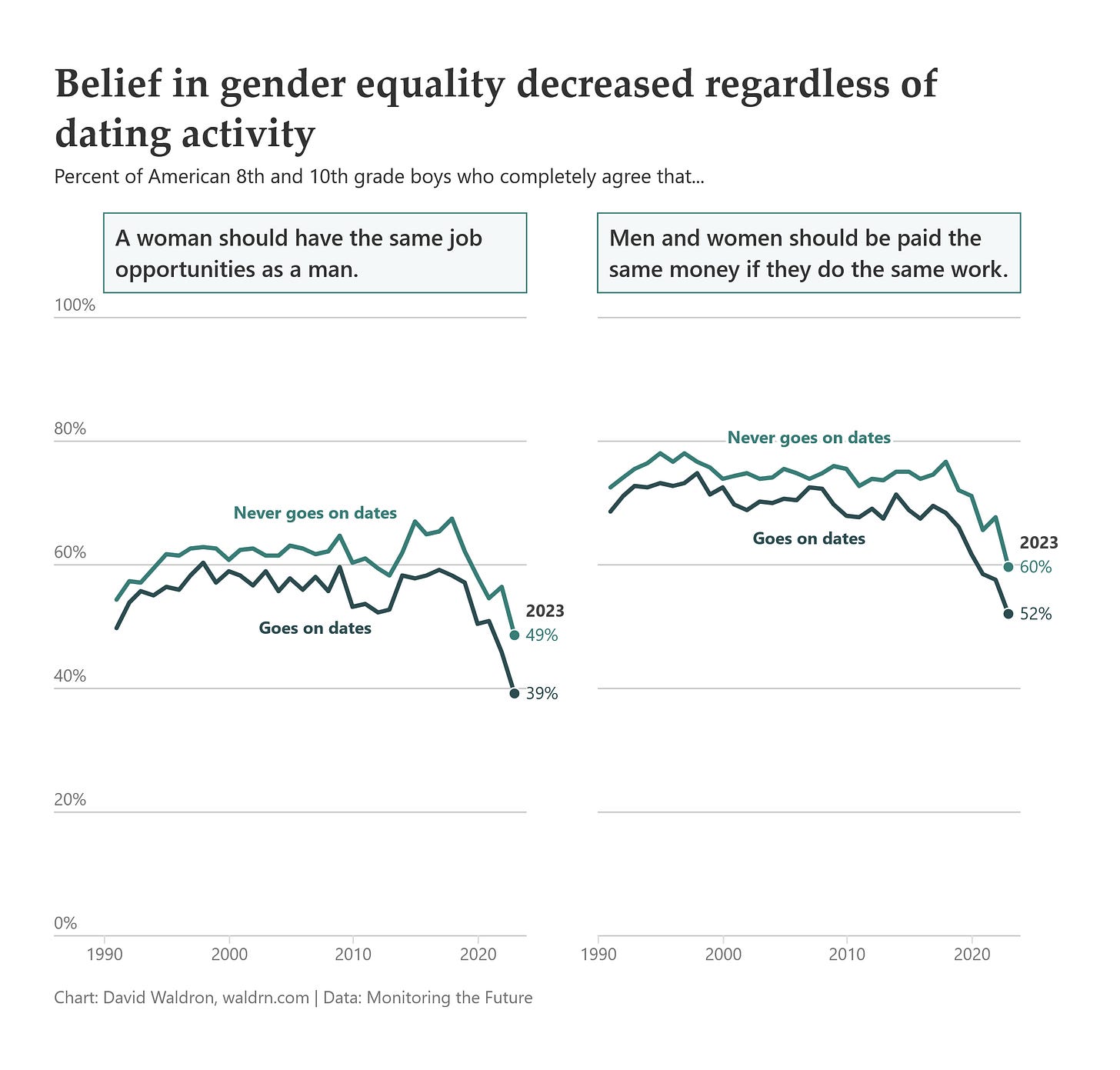
A similar story emerges with respect to dating activity. Contrary to the hypothesis that misogyny is driven by romantic struggles, support for gender equality has typically been lower among boys who go on dates, and has decreased by a similar amount among boys who go on dates and those who don’t.
Absent fathers
One evergreen hypothesis regarding the behavior of boys is that it all relates to the absence of a father figure in the household. But views of gender equality have been almost identical between boys who did or didn’t have a father in the household for the past three decades. And that doesn’t seem to have changed during the current decline.
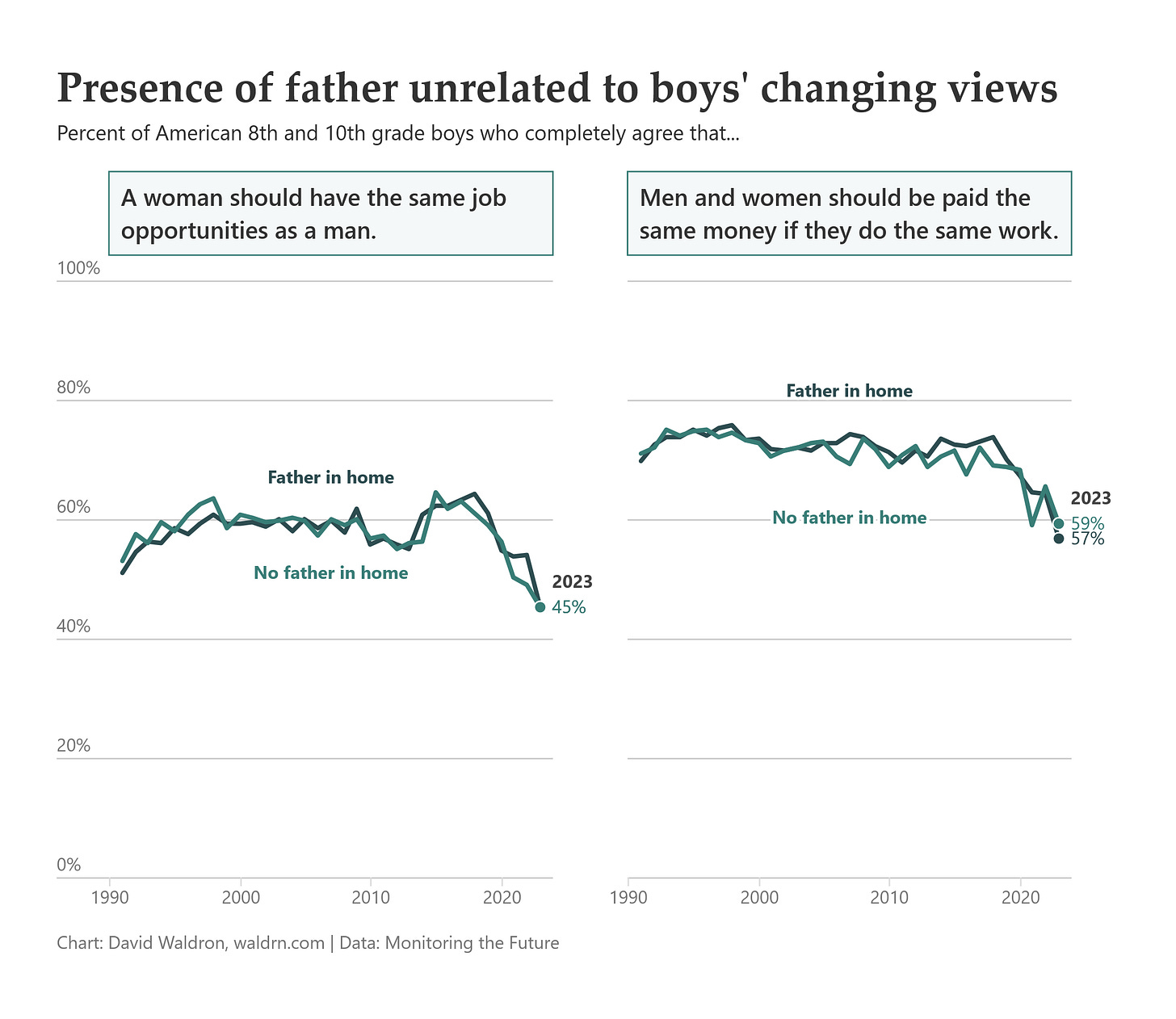
Education
In general, boys with less educated parents tend to endorse gender equality at lower rates. But this gap has actually closed in recent years, as the decline in egalitarian views has been steeper among boys with college-educated mothers than those with non-college-educated mothers.






















